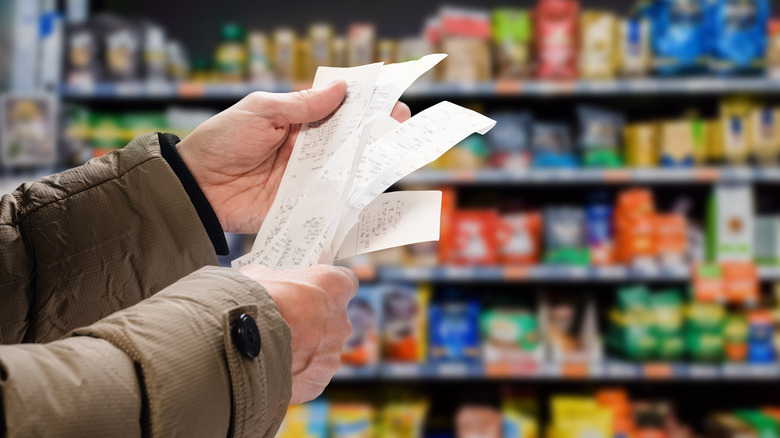Economists Are Struggling To Understand Exactly Why Food Prices Continue To Rise
Stubborn food prices have economists unsure of when consumers will start to see relief from high grocery bills. The Wall Street Journal reports that even though commodity prices have been dropping, food costs have not. The Food and Agriculture Organization of the United Nations Food Price Index shows that global commodity averages have dropped well below where they were this time last year, and have even come close to where they were at this time in 2021. We haven't seen those lows passed onto consumers yet.
The Wall Street Journal points out that some degree of lag can be expected between the cost of raw commodities — i.e. wheat, corn, or sugar — and the price of the products that they are used to create. Economists believe that the separation between these prices has to do with more than inflation.
Global food costs soared last year due to the Russian invasion of Ukraine last February. The Wall Street Journal says that the two are some of the world's leading contributors to grains and the supplies used to make chemical fertilizers. Since then, the global market has adjusted to the ongoing war, and has helped to slowly lower commodity costs. However, just because the global market for these commodities has leveled off, it doesn't mean that corporations are playing along.
Economists believe high corporate profits are to blame
Pantheon Macroeconomics economist Claus Vistesen told The Wall Street Journal that one of the most likely explanations for these disparate price metrics is that food producers are overcharging consumers. "The only way to explain this in relation to what we've seen in some of the commodity price indices for food is that [price] margins are being expanded," said Vistesen. Economists believe these opportunistic practices are taking advantage of consumer resiliency through tough times and may slow the recovery from global inflation.
Consumers have recently seen evidence that food prices are slowly dropping by razor-thin margins. However, this comes at a time when Americans are already choosing groceries over other goods, and COVID-era expansions to SNAP benefits have expired leaving those in need without the same economic assistance. The Wall Street Journal adds that some European governments like France have already begun to make agreements with food producers to ensure that consumer prices stay low through the ongoing economic recovery.

